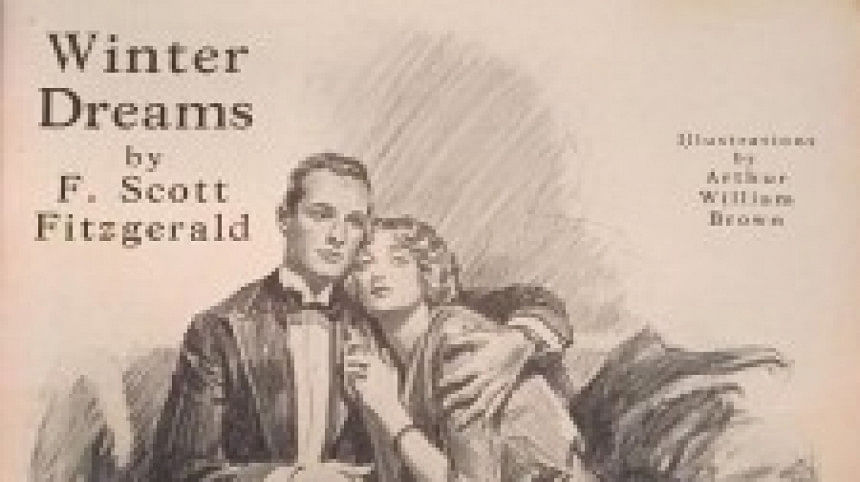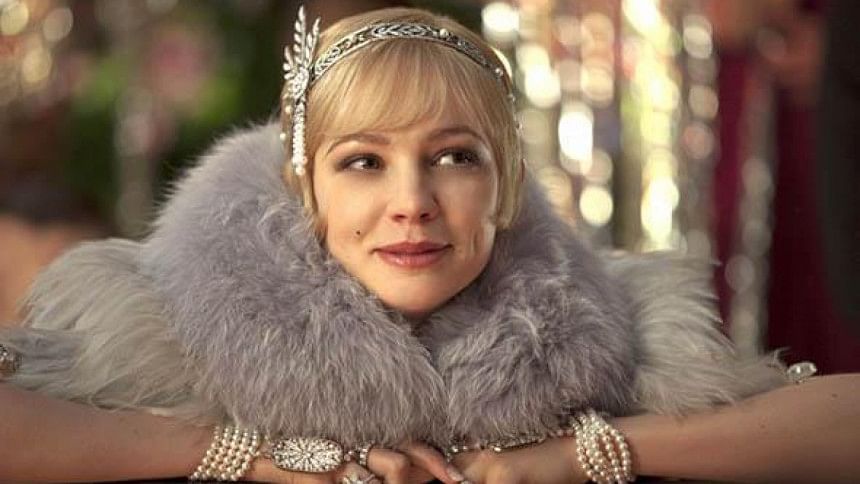Why Fitzgerald’s “Winter Dreams” is a perfect way to start the season

A few days ago when I woke up in the morning to get ready for work, I stood on my balcony and felt a slight, familiar nip in the air. The sky was grey, a light mist had enveloped the buildings standing before me, and I remember shuddering, thinking to myself—oh no, it's winter. Now don't come at me, I realise there are a few things about the season that are undoubtedly wonderful: a steaming mug of rich hot chocolate, or coffee, or a bowl of soup; or when you curl up under your blanket with a good book on a bright morning. For the weather that struck this past week, F Scott Fitzgerald's classic short story, "Winter Dreams" (Scribners, 1922), seemed like a perfect read to usher in the eponymous season. The story has melancholia and loss, folded in with hopes, dreams, and a person's desire to achieve happiness.
The story opens with an omniscient narrator distinguishing the protagonist, 14-year-old Dexter Green, from other caddies working at the golf club who are "poor as sin"; Dexter, in contrast, "only [caddies] for pocket-money". This sets the scene for the rest of a narrative in which Dexter tries to better his social standing and become part of the elite that are born into the wealth of Sherry Island, despite him coming from the backwoods of Minnesota. There, he meets nine-year-old Judy, who comes from the aristocracy into which Dexter aspires to integrate. He is immediately taken by Judy, although he is too proud to admit it to himself, and quits the job rather than work for her. But a resolute Dexter is reliant on changing seasons: "October filled him with hope which November raised to sort of ecstatic triumph", the author writes. The vivid descriptions of winter, in contrast with his dismay around spring, build up an atmosphere of magic, nostalgia, and almost childlike excitement for the read.

"Winter Dreams" is told in fragments. Fitzgerald zeroes in on defining moments that, in parts and section breaks, give us a snapshot of Dexter's character as it evolves—his dreams and ambition, and the events that propel him forward. After college, he joins a partnership for a laundry business, and begins his ascent up the social ladder; he is eventually invited to play golf with the people he once caddied for, which indicates the boy's long-awaited acceptance by the elite class. However, "[a]s so frequently would be the case in the future," the narrator prophesies, "Dexter was unconsciously dictated to by his winter dreams." Years later, when he meets Judy again, she is "arrestingly beautiful", and he realises the feeling of emptiness and dearth anew.
Over the years, he meets her on and off, gets engaged to a kind but unremarkable Irene Scheerer and breaks it off when Judy expresses her interest again. With all her privilege and class, and unattainability, Judy becomes the embodiment of the luxury, the fame, "the glittering things and glittering people" that Dexter is obsessed with, and winning her over would finally complete his initiation. She becomes his winter dream.
Set in the Jazz age of the 1920s, this narrative is characterised by hedonism, materialism, and unchecked opulence. The narrator tells us, in "[o]ne minute [Dexter] had the sense of being a trespasser—in the next he was impressed by the tremendous superiority he felt…" and in this moment of fleeting introspection, the story presents to us a contradiction: it gives us a glimpse at Dexter's vulnerability, a sense of him feeling like an outsider even though he has been accepted into the lavish life he had always dreamt of conquering. The Roaring Twenties, however, held no room for even the smallest shred of doubt, and the larger-than-life politics of it extinguished the kind of borrowed ambition Dexter nurtured. Like the changing seasons, even Dexter's blossoming determination will age, slow, and diminish.
If this reminds you of The Great Gatsby, that's because it is. "There was a general ungodliness in the [...] almost passionate quality of her eyes", the narrator of "Winter Dreams" tells us of a young Judy. Yet, it reminds one of Daisy Buchanan when she is first revealed to us in the film and in the book: gently glancing towards the audience, coy yet bewitching, her surroundings ethereal in the beige of the flying curtains and soft sunlight, vulnerability in her big "bright eyes". "Winter Dreams" was actually written as one of the earlier drafts to Gatsby and both are based on the same trope of Fitzgerald's unfortunate romance with a wealthy socialite by the name of Ginevra King. Unlike the Great American Novel, however, the short story reads more like a central character study, without much of a deep dive into the elaborate cast of characters and unrelated descriptions, and rationalises Dexter's intrinsic needs and actions, focalised through his point of view.

Fitzgerald's language, as always, flows seamlessly throughout the prose and sets the tone of a tragedy amidst the brisk magic and frivolity of winter. Regardless of its rather snap progression of events, we, as readers, are immersed in the visceral details of the story: the swaying water in the wind, a serene note from a distant piano, Judy's fluctuating temperament and interest, and Dexter's disappointment in his gradually abating illusions— it is like standing in the middle of a grand montage screening before you.
All at the same time, the writer compels us to question the mere emptiness in a person's existence and the reason for having outrageous ambitions to fill that space. We find ourselves asking on behalf of the protagonist: is this kind of ambition justified? Is it reasonable? What happens when the ice cracks beneath your feet? Right till the end, as a creeping disillusionment replaces Dexter's resolution, we are floating through two decades of his life in a dazed wonder.
Time plays a crucial—and dare I say beautiful—role in "Winter Dreams"; it gives us a feeling of nostalgia and joy, and we find ourselves basking in the glory of the 1920s. At the same time, we look beyond the surface towards something more "real", perhaps. Like the first crack on ice, this short story fractures some of the misleading illusions we may have held for ourselves this past year—just in time to prepare for a new year and start fresh.
Maisha Syeda is a writer, painter, and a graduate of English Literature and Writing. She is an intern at Daily Star Books.

 For all latest news, follow The Daily Star's Google News channel.
For all latest news, follow The Daily Star's Google News channel. 



Comments